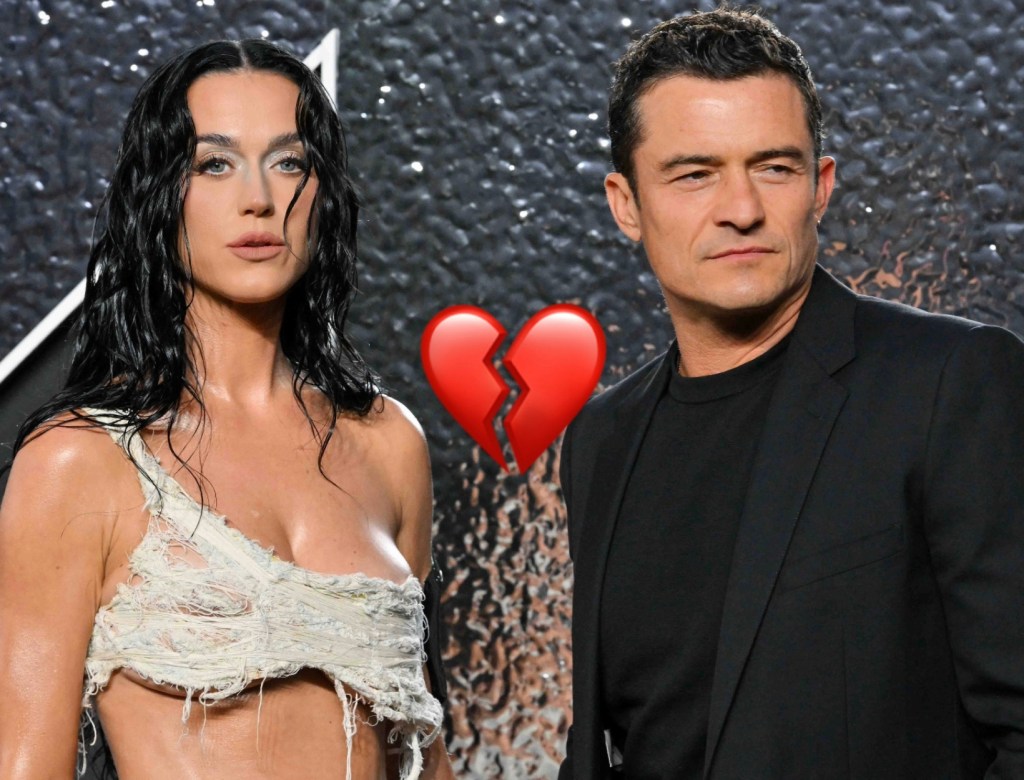How Toxic Relationships Affect Mental Health
Your mental health is a priority. So it’s important to pay attention to the things that take a toll on it! Given that we as humans are innately social, it’s no surprise that our human relationships are heavily linked to overall happiness and mental well being. In fact, this study found that the overall quality of social relationships is a strong risk factor for major depression. Therefore, toxic people and relationships are one of the main things that can impact your mental health.
How Toxic Relationships Affect Mental Health
So because we’ve all experienced a toxic relationship or two (or 10), today we’re diving deep into how toxic relationships affect mental health. Plus, we’ll give you tips for how to handle these negative relationships moving forward.
What Is The Definition Of a Toxic Relationship?
How do you define something or someone that’s toxic? A toxic person or relationship is typically described as one that makes you feel unsupported, misunderstood, demeaned, or attacked ( source ). A toxic person or relationship will often make you feel worse in general or about yourself. On the other hand, a healthy relationship will make you feel better, more secure, and overall joyful. Toxic people can leave you feeling down, are able to suck the energy right out of you, and can even mess with your ability to create new bonds long term.
But how do you spot the signs of a toxic relationship? The most obvious ones are verbal abuse, any physical aggression, reluctance to set boundaries, emotional abuse, and an overall lack of support. However the signs might be less obvious. For example, negative relationships are likely to make you feel like you’re in a constant state of stress or that you’re always emotionally drained. You might feel as if you are walking on eggshells every time you are with a toxic person. Honestly, it’s not fun to be in a toxic relationship because your energy is being trained rather than refueled.
Toxic relationships can isolate you from other more empowering & supportive relationships.
When you’re constantly in a negative environment, suffering from stress and emotional abuse, you might put a wall between you and everyone else. There may be times you’re preoccupied with drama in the toxic relationship, too upset to spend time with others, or simply drained and not feeling up to it. Toxic relationships take up a lot of mental space, which is a limited resource. If you feel bad, you won’t be in the mood to protect and invest in your existing bonds. This isolation actually makes everything worse. Disconnecting from others will lead to more anxiety and loneliness.
Negativity becomes part of your everyday life.
Toxicity sends your mind into a negative spiral. You carry the weight of toxic relationships everywhere you go. That negative energy is tough to shake off and can impact you throughout the day. Being in a negative state of mind will make you view the world generally from a more negative perspective. You’re also exposing yourself to consistent negative headspace trauma. If you are struggling with negativity, give a listen to the following episode of The Femails with Lauren McGoodwin to find some comfort: How To Stop a Negative Thought Spiral.
You may experience lower self esteem.
A toxic person might constantly put you, your actions, and your feelings down. Eventually you might start putting yourself down too. Being treated poorly leads to a poor relationship with yourself. And suddenly you may experience less confidence in your abilities, your dreams, and your instincts. Inner strength is important to cultivate and protect. If toxic relationships put your inner strength and security at risk, it’s time to let go of the relationship.
Negative relationships can lead to or worsen anxiety and stress disorders.
Toxic relationships create mental strain and stress, and even all out health problems. Our emotions and nervous systems can only handle so much. This study found that toxic relationships increased anxiety and stress disorders, while health relationships decreased anxiety and stress disorders. It’s crucial to spot the early signs and symptoms of toxic relationships related to anxiety and stress. If you want to learn more on how to change toxic thinking and reduce anxiety or stress, this episode of The Art Of Being Well with Dr. Will Cole does an excellent job of covering the topic. It guides you through a five-step plan to eliminate the causes of anxiety, depression, and stressful thoughts.
You neglect self-care practices.
Toxicity and negativity feed off each other. Negative emotions are capable of tearing down your more healthy habits. If you feel bad because of a toxic person in your life, you might stop taking proper care of yourself. This includes neglecting your self-care routine, sleep habits, workout schedule, or even personal hygiene. We all can relate to the girl eating a pint of rocky road ice cream in sweatpants from yesterday after a rough break up. Proper sleep, an exercise routine, and healthy diet all impact your physical and mental health and overall wellness. Knowing how to cope and practice self-care is key when dealing with negative relationships and emotional abuse ( and especially abusive relationships ).
Here is an amazing episode of Looking Up with Dr. Deepika Chopra that covers this subject and shares tips on coping and navigating mental health issues: Learning to Cope with Mental Health Advocate and Founder of PYM, Zak Williams.
Being in constant fight-or-flight mode can trigger health conditions.
Even though this post is about how toxic relationships affect mental health, they can have a harmful impact on your physical health as well. Experts have concluded that toxic relationships can lead to an increased risk of developing heart problems, higher blood pressure and blood sugar levels, and a weakened immune system. This is because of the constant stress your body is put through when in fight-or-flight mode, a state very common when around toxic people.
How To Handle Toxic Relationships
Accept the situation and seek help.
First, practice self-awareness and discernment. What are the signs that a relationship is toxic? How does that toxic person make you feel? Could your behavior also be engaged in a toxic pattern? These are the questions you should ask yourself in order to fully accept the situation. Once you are able to recognize you are stuck in a negative relationship, it is time to seek help. Start by looking for support from your family members, your friends, your confidants. Also, consider going to therapy to get help with processing the trauma and emotional abuse you went through.
Tell the other party in the toxic relationship how you feel.
If you notice a negative shift in a relationship towards toxicity, voice your concerns with your partner immediately. This is the only way to work things out! Speak your truth in a respectful and calm manner, explaining what behaviors are hurting you. Don’t attack the other person. You are trying to reverse toxic relationships, not get caught up in a negative dynamic. If the toxic person is your current partner, think about attending couple’s therapy. Assess the situation and act accordingly. This episode of The Skinny Confidential Him & Her Podcast gives tips on the best tactics for a healthy relationship: Tactics & Tips For A Better Relationship – Couples Finance, Sex, Parenting, Future Planning, & Limited Fights. Tune in to learn more about positive couple’s dynamics.
Set boundaries. Both for toxic people and yourself.
Boundaries are key to protecting your mental health. That’s why it’s so important to know how to set them. They set the stage for mutual respect and honest communication. By establishing boundaries with a toxic person, you are setting a strict limit for their behavior. Draw the line between what you will tolerate and what you won’t let pass. But also set boundaries for yourself. If you’ve decided not to have any more contact with a toxic person, respect your own limits and don’t be tempted to resume your relationship with them. You can learn how to set healthy boundaries HERE. We also recommend this daily mediation on boundaries from Mind. Body. No Soul.
Forgive, learn, & grow.
Holding grudges doesn’t feel good and will only hurt you even further. Hate and resentment will catapult more negative emotions and transform you into a very bitterness. The best plan of action is to forgive and let go of that toxic person. Make amends with the past trauma. Forgiveness doesn’t mean you forget what happened or try to bury it deep down. Allow yourself to mourn the relationship, reflect, and look at it as a lesson for how relationships can become unhealthy. Here’s an episode of Real Pod with Victoria Garrick that discusses how to forgive and heal strained family relationships. You can also learning more about dealing with a toxic family with this episode of Relationsh*t.
Look for stress reduction practices.
Handling toxic relationships takes a toll on your mental health. So it’s important to have a solid self-care routine with stress-reduction practices in it. A few of our favorites are meditation, yoga, long baths, gratitude journals, breath-work, any form of exercise, and listening to mental health podcasts. Take a deep dive into self-care with Whitney Port of With Whit and the ladies That’s So Retrograde.
Be ready to walk away from the situation.
Sometimes things just don’t work out, no matter how hard we try. We have to recognize when we might be fighting for a lost cause and find a way out. It can be emotional and lead to severe guilt. But in the end, you will look back and thank yourself for breaking free of a toxic relationship. It only gets better from there!
What are some of your tips for dealing with toxic people?
We hope you learned a few tips and tricks for handling negative relationships, the signs of a toxic person, and how to put yourself first. Remember, it’s important to always protect your mental health and avoid letting the energy get sucked from your life! Were you in a toxic relationship? How did you handle the situation? Feel free to share any past experiences with us in the comments below. We hope you stay positive and stay healthy!



















